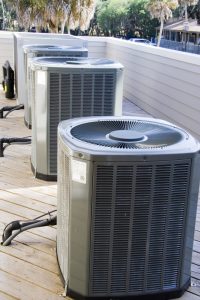
This post is for all the homeowners out there that see the word “refrigerant” and immediately turn the other way. We get it, you didn’t sign up for a science class when you purchased your air conditioner or heat pump, you just want to know what could go wrong with it and whether your money was well spent.
Well, part of learning whether or not you need air conditioning service in Ponchatoula, LA is learning about the system itself. From blower motors to electrical components, and yes, even refrigerant, getting a better idea of how these factor into the cooling process can help open your eyes to some problems that your own air conditioner is having.
So, let’s talk about refrigerant. What is it? How does it work? How can you tell if there’s a problem with your refrigerant line? We’ll try and answer these questions as easily and painlessly as possible.
What Is Refrigerant?
Refrigerant is a chemical that’s housed inside your air conditioner in either gas or liquid form, as it changes back and forth through evaporation and condensation. By constantly evaporating and condensing in the coils within your AC, refrigerant can be used to draw heat from one location and deposit it in another.
Refrigerant comes in two forms, either R-22 (Freon) or R-410A. If your air conditioner was developed within the last 10 years, you’re probably using a system that houses R-410A, since R-22 is harmful to the environment and was effectively phased out in January of 2020. If your air conditioner runs on Freon, we highly advise you to have the system replaced as soon as possible.
How Does It Work?
So, if you remember your middle school science class, there are two processes we need to understand to know how refrigerant works. Evaporation and condensation. With the help of an evaporator coil, your refrigerant evaporates in your air conditioner, effectively drawing in heat as it does so. When it is cycled to the condenser coil, the heat is then deposited elsewhere as it condenses. The cycle then continues regularly while your home is cooled to the appropriate temperature.
Is Your System Leaking Refrigerant?
This is perhaps the most important question to have answered. Refrigerant leaks can be a huge problem that end up costing a lot of money in either expensive repairs or a whole system replacement. Here’s how to tell if your system is leaking refrigerant:
- Poor cooling power. Refrigerant is vital for the cooling process, and if you’re running low on refrigerant due to a leak, your system might not cool your home properly.
- Higher energy bills. Less refrigerant means your system is going to have to work harder to do the same amount of cooling as before.
- A “hissing” sound. Since refrigerant is housed as a gas, the sound of gas escaping can take the form of a hissing noise.
- A frozen evaporator coil. When there’s not enough refrigerant, your system will have trouble drawing in the heat, causing ice to form on the coil.
Well, we can say at this point that you’ve graduated from refrigerant school. Thanks for attending! Give our team a call if you suspect a problem with your refrigerant line.
When you need it done right, call Professional Heating & Air.
